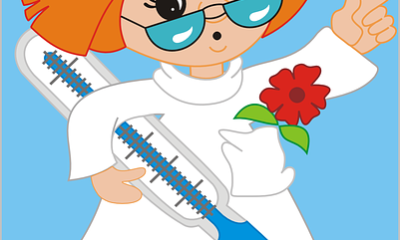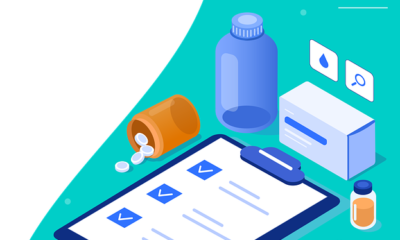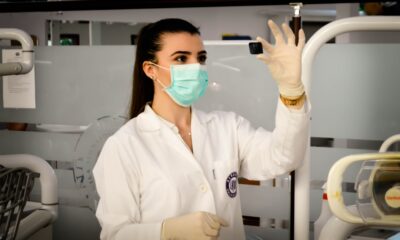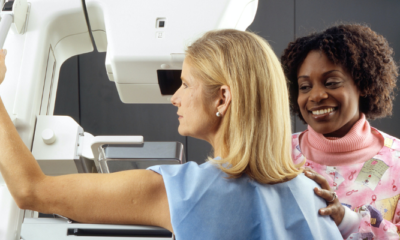Technology
Neurotechnology in Healthcare: Advancements for Diagnosis, Treatment, and Rehabilitation

Welcome to the future of healthcare! The field of medicine is constantly evolving, and one of the most exciting advancements in recent years is neurotechnology. This cutting-edge field combines neuroscience, engineering, and computer science to develop innovative tools that can diagnose, treat, and rehabilitate patients with neurological disorders. From brain-computer interfaces to virtual reality therapy, neurotechnology is transforming healthcare. In this article, we’ll explore the applications of neurotechnology in diagnosis, treatment, and rehabilitation.
Introduction
What is neurotechnology?
Neurotechnology combines neuroscience, engineering, and computer science to develop tools that interact with the human nervous system. It aims to understand how the brain works and creates devices to diagnose, treat, or rehabilitate neurological conditions.
At its core, neurotechnology involves sensors and electrodes embedded into the brain or peripheral nervous system. These sensors detect neural activity and send signals for analysis. By studying these signals, researchers gain insights into how different parts of the brain function.
One example of neurotechnology in action is deep brain stimulation (DBS). It involves implanting electrodes into specific brain regions to alleviate symptoms of Parkinson’s disease and other mental health disorders.
Neurotechnology in healthcare:
Neurotechnology has revolutionized healthcare by providing new ways to diagnose, treat, and rehabilitate patients. In diagnostics, neurotechnology measures brain activity in response to stimuli or specific tasks, helping doctors identify areas of dysfunction or damage.
In treatment, neurotechnology includes deep brain stimulation (DBS), where electrodes control abnormal impulses. It is effective in treating movement disorders like Parkinson’s disease.
For rehabilitation, neurotechnology offers tools for patients recovering from stroke or traumatic brain injury. Virtual reality therapy simulates real-world environments, allowing patients to practice necessary skills for daily life.
Applications of Neurotechnology in Healthcare: Expanding Possibilities for Better Health
Neurotechnology is transforming the healthcare landscape, offering innovative solutions to diagnose, treat, and rehabilitate patients. With neuroimaging techniques like MRI and CT scans, doctors can now identify brain abnormalities linked to conditions such as Alzheimer’s disease and stroke. This precise imaging technology aids in accurate diagnosis, enabling timely interventions and targeted treatments.
In the realm of rehabilitation, neurostimulation devices play a vital role. By stimulating specific areas of the brain, these devices facilitate recovery from stroke or brain injury, helping patients regain lost functions and improve their quality of life. Additionally, virtual reality technology is revolutionizing physical therapy by creating immersive environments that simulate real-world scenarios. This immersive therapy enhances patient engagement and enables them to practice essential skills in a safe and controlled setting.
Neurotechnology also holds promise in developing assistive devices for individuals with disabilities. Brain-computer interfaces (BCIs) are groundbreaking innovations that allow people to control prosthetic limbs using their thoughts alone. This breakthrough technology empowers individuals with paralysis or amputations, offering them greater independence and improving their overall well-being.
As neurotechnology continues to advance, the possibilities for its applications in healthcare are expanding rapidly. From precise diagnosis to targeted rehabilitation and assistive devices, neurotechnology is revolutionizing the way we approach healthcare, making a positive impact on the lives of countless individuals.
The Benefits of Neurotechnology in Healthcare: Unlocking New Possibilities for Better Health
Neurotechnology brings a host of benefits to the field of healthcare, revolutionizing patient care and improving outcomes. Here are some of the key advantages:
Enhanced Diagnosis: Neurotechnology, such as advanced imaging techniques like MRI and CT scans, provides detailed insights into brain abnormalities associated with various conditions. This leads to more accurate diagnoses, enabling doctors to develop targeted treatment plans and interventions.
Targeted Treatment: Neurotechnology offers precise treatment options, such as neurostimulation devices, which can stimulate specific areas of the brain. This targeted approach helps alleviate symptoms and improve quality of life for patients with conditions like stroke or brain injury.
Improved Rehabilitation: With neurotechnology, rehabilitation becomes more effective and engaging. Virtual reality therapy creates simulated environments that allow patients to practice essential skills in a controlled setting, promoting faster recovery and better outcomes.
Assistive Devices: Neurotechnology enables the development of assistive devices, like brain-computer interfaces (BCIs), which empower individuals with disabilities. BCIs enable direct control of prosthetic limbs using thoughts alone, enhancing independence and restoring functionality.
Advancing Research and Understanding: Neurotechnology enhances our understanding of the brain and neurological conditions. It facilitates ongoing research and drives the development of new treatments and interventions, leading to continuous advancements in the field of healthcare.
By harnessing the power of neurotechnology, healthcare professionals can provide more precise diagnoses, targeted treatments, and effective rehabilitation, ultimately improving patient outcomes and quality of life. The benefits of neurotechnology are vast and hold great potential for the future of healthcare.
Risks associated with neurotechnology in healthcare:
While neurotechnology shows promise, there are risks to consider. Over-reliance on technology could reduce human interaction and empathy between patients and healthcare providers.
Improper regulation could lead to privacy violations and misuse of patient data. Ethical concerns arise with invasive procedures like brain implants.
Physical risks, such as infection at implant sites or adverse reactions to medications, must be considered.
Conclusion:
Neurotechnology has revolutionized healthcare by providing advanced diagnostic, treatment, and rehabilitation methods. Its applications, including BCIs, neurofeedback, and TMS, enable precise and personalized care for patients with neurological disorders.
While risks exist, careful implementation and monitoring can minimize them. The benefits of neurotechnology in improving patient outcomes far outweigh the potential drawbacks.
As we move into a technologically advanced era of medicine, it is crucial for healthcare professionals to embrace neurotechnology while being mindful of best practices and ethical considerations. The future looks bright as researchers continue to explore the power of neurotechnology in improving healthcare outcomes.
































